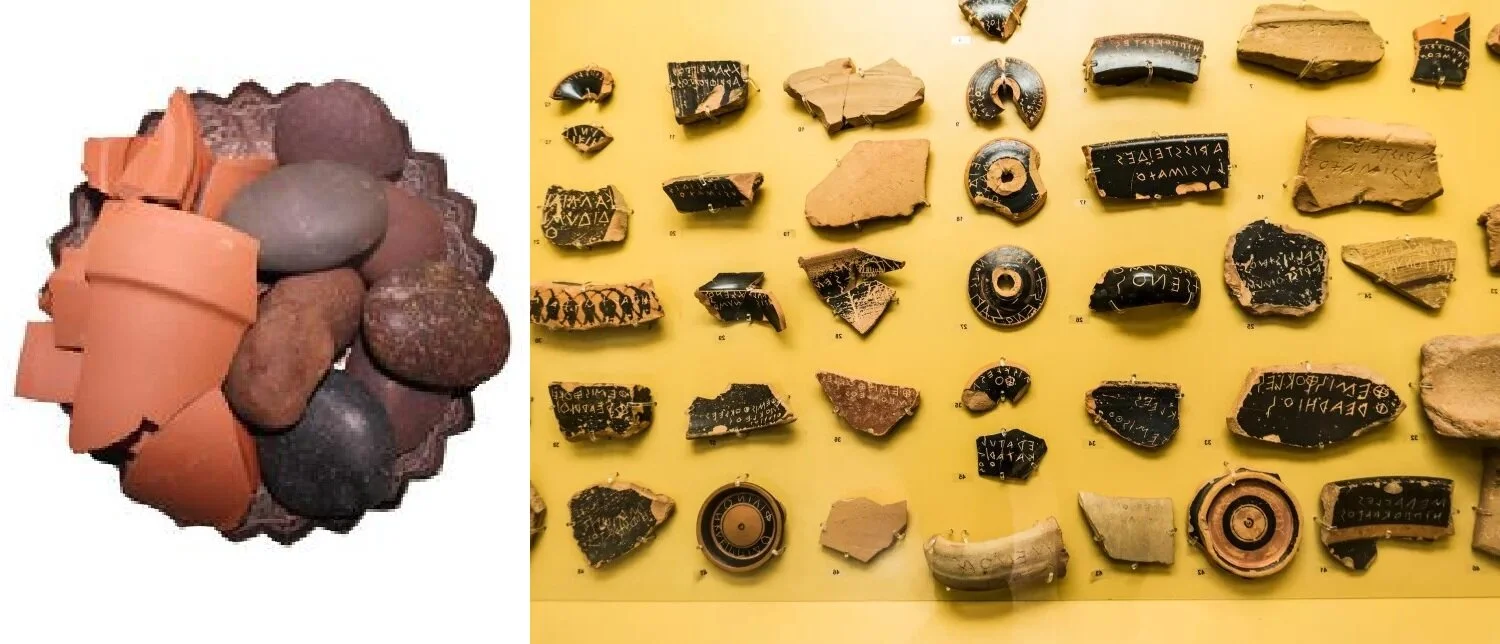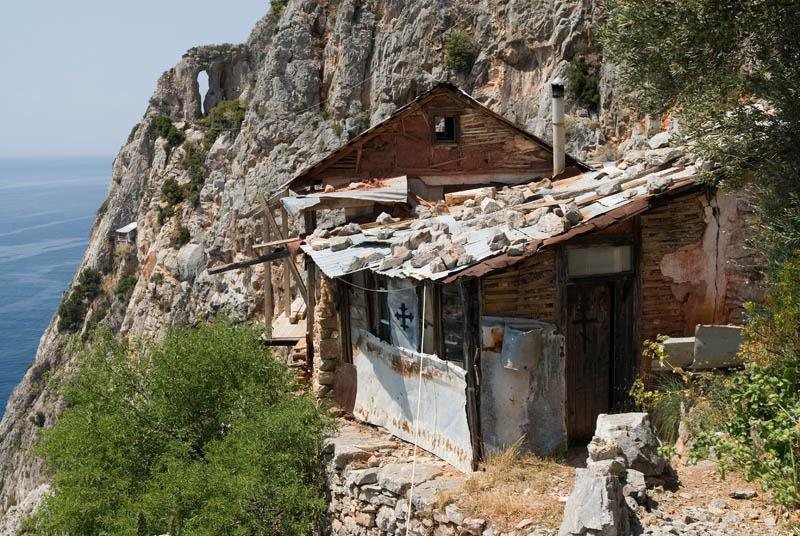The ancient Greeks used ceramics bearing an enemy's name.
In the early days of the COVID-19 pandemic, toilet paper was nearly as hard to come by as personal protective equipment. Though toilet paper has existed in the Western world since at least the 16th century A.D. and in China since the second century B.C., billions of people don’t use toilet paper even today. In earlier times, toilet paper was even more scarce.
Throughout history, people have used everything from their own hands to corn cobs to snow to clean up after bowel movements. One of the oldest materials on record for this purpose is the hygiene stick, dating back to China 2,000 years ago, according to a 2016 study in the Journal of Archaeological Science: Reports. Hygiene sticks, also called bamboo slips, were wooden or bamboo sticks wrapped in cloth.
During the Greco-Roman period from 332 B.C. to 642 A.D., the Greeks and Romans cleaned their derrières with another stick called a tersorium, according to a feature in the BMJ. The tersorium, which had a sponge on one end, was left in public bathrooms for communal use. Some scholars argue that the tersorium may not have been used to clean people's behinds but the bathrooms they defecated in. People cleaned the tersorium by dumping it in a bucket of salt or vinegar water or by dipping it in running water that flowed beneath the toilet seats.
Ancient Greeks often used stones ("pessoi") or fragments of ceramic ("ostraka") to wipe.
Greeks and Romans also tidied up with ceramic pieces rounded in the shape of an oval or circle, called pessoi. Archaeologists have found pessoi relics with traces of feces on them, and an ancient wine cup features a man wiping his bum with pessoi. Greeks may have also wiped with ostraka, ceramic pieces that they inscribed with the names of their enemies when voting to ostracize them. After the vote, they may have wiped their feces on their enemies’ names. However, these ceramic materials may have damaged the butt over time, causing skin irritation and external hemorrhoids, according to the BMJ.










